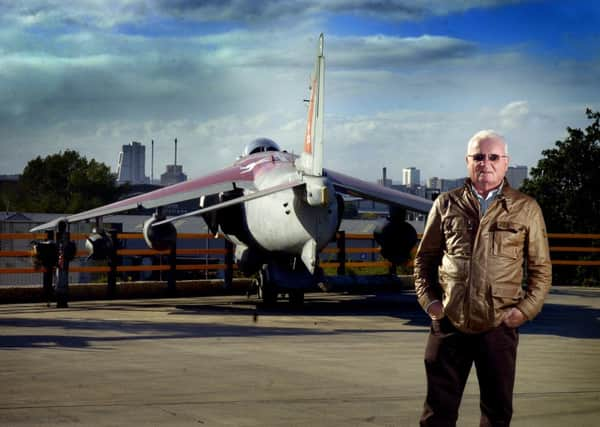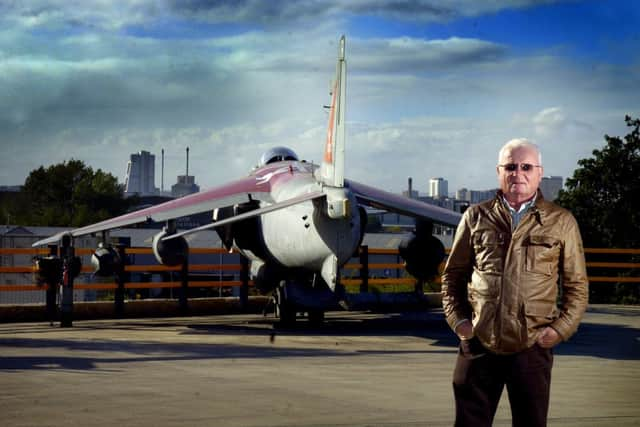Bastion of defence now pays high price for pullout


The company, founded by the late entrepreneur Jimi Heselden, produces security barriers that protect soldiers from bombs, and can also protect remote villages from flooding.
Mike Hughes, Hesco Bastion’s chief executive, said the business planned to ensure Mr Heselden’s spirit lived on by carrying out humanitarian work with organisations including the United Nations.
Advertisement
Hide AdAdvertisement
Hide AdMr Hughes said: ““There’s no doubt that Jimi produced a product that has had an impact on countless lives around the world.”


Mr Heselden invented the ‘concertainer’ box to store materials for a chimney-cleaning company he set up in the 1980s. The Ministry of Defence approached him to use the device in battle zones.
The former miner founded Hesco Bastion in Cross Green, near Leeds, because he wanted to employ local people. It makes the ‘blast wall’ basket, which replaced sandbags as protection for soldiers. Camp Bastion, the British military base in Afghanistan, was named after the firm.
In the year to January 31 2013, Hesco Bastion’s turnover fell by two-thirds to £33m. The overall profit before tax was £4.1m compared with £22.5m the year before, while the operating profit was £4.4m compared with £21.9m last year. The company has responded by cutting its staff – from 184 in 2012 to 83 today, including 70 based in Leeds.
Advertisement
Hide AdAdvertisement
Hide AdMr Hughes said Hesco Bastion had undergone a period of significant restructuring, as a direct result of the gradual withdrawal of the US and UK military from Afghanistan and Iraq. The number of UK troops in Afghanistan is to drop to 6,000 this autumn. The number of armed forces personnel in the country, which previously stood at around 7,900, is dropping, in line with the aim of reducing numbers to 5,200 by the end of the year. All troops are planned to leave Afghanistan next year. In recent years, thousands of Hesco Bastion’s bags have lined the roads around Camp Bastion – as well as other British bases across Helmand Province.
Mr Hughes said: “Although this was foreseen, the speed of the removal has been much quicker than anticipated, which is reflected in our recent financial statements. However, the timely action we have taken to identify this change, and the new journey we are now embarked on, means the company is well placed to build upon our firm foundations and position as the market leader in defence products.
“We have experienced great change and responded to challenging external factors. As a result, Hesco Bastion is embarking on a new focus which sees us investing in product innovation, new product offerings and market diversification.”
Contract wins in Thailand, and with several international oil companies have seen Hesco Bastion become involved in flood protection work. It provides security for infrastructure projects and has also expanded its work with leading international humanitarian and peacekeeping organisations.
Advertisement
Hide AdAdvertisement
Hide AdMr Hughes added: “As a result of the restructure, we are a more focused and resilient business. Our target for 2014 is to build upon our reputation as the market leader in our niche sector and continue to expand into new export markets to fuel growth. There is important work still to do, but we have a sound base from which to work and are proud to maintain our manufacturing capabilities here in Leeds. Our goal continues to be the protection of people and assets against man made and environmental forces.”
Mr Hughes said that Mr Heselden’s death had shocked and saddened everybody.
in 2011, an inquest heard that Mr Heselden, who was 62, suffered fatal injuries after reversing his two-wheeled Segway scooter off a cliff near his home in Thorp Arch, Wetherby. He fell 42ft on to the banks of the River Wharfe, after attempting to move out of the way to let a fellow dog walker past.
The former miner was said to be worth £166m and was renowned for his charitable donations. Coroner David Hinchliff recorded a verdict of accidental death.
Advertisement
Hide AdAdvertisement
Hide AdMr Hughes said: “It was difficult for the family, the staff and the management. To deal with that, and the large reduction in turnover and volume, because of what has happened in Afghanistan, has caused quite significant cultural change within the business.
“Jimi was highly involved in his local community. He was very passionate. It is the intention of the business to remain in Leeds.”